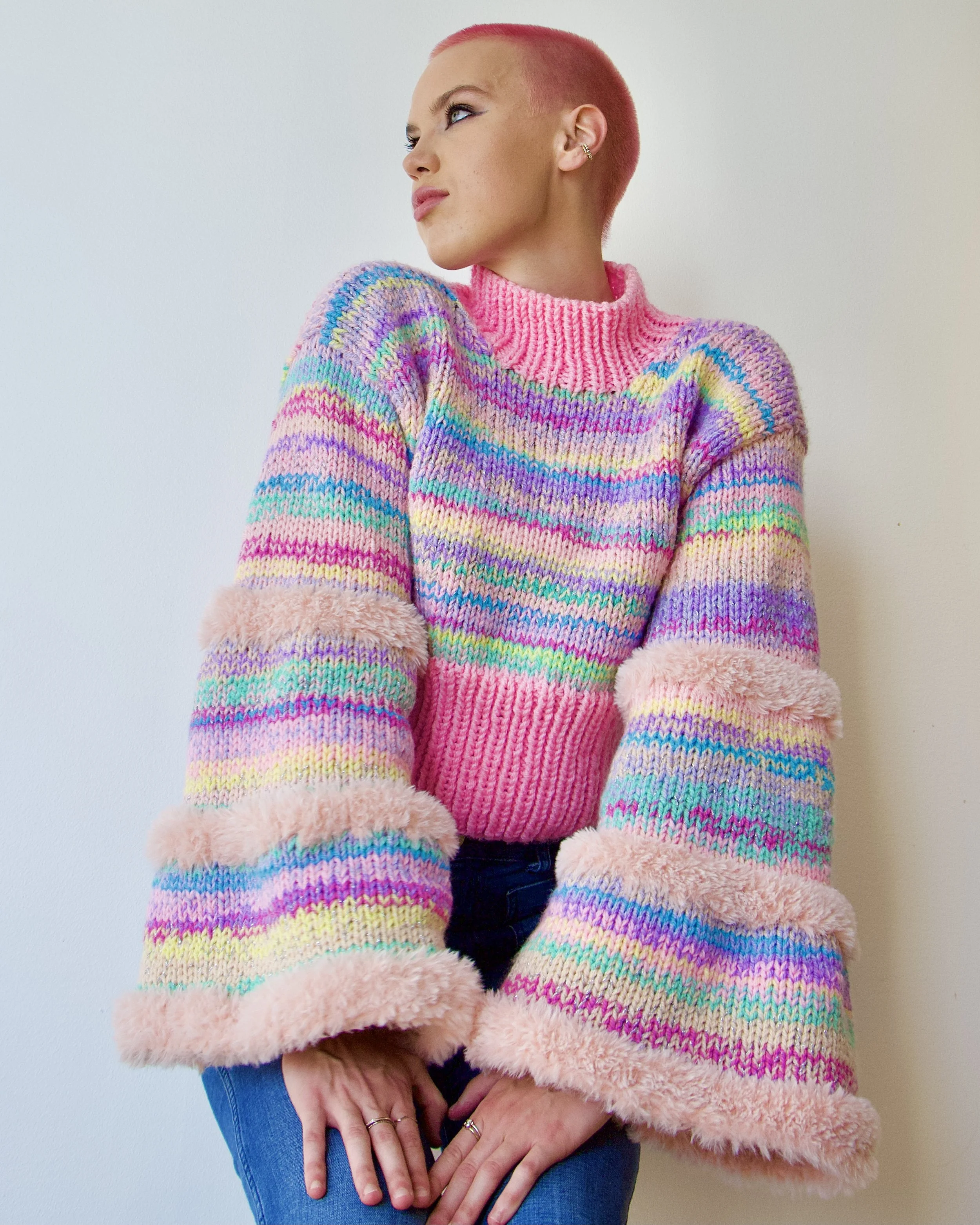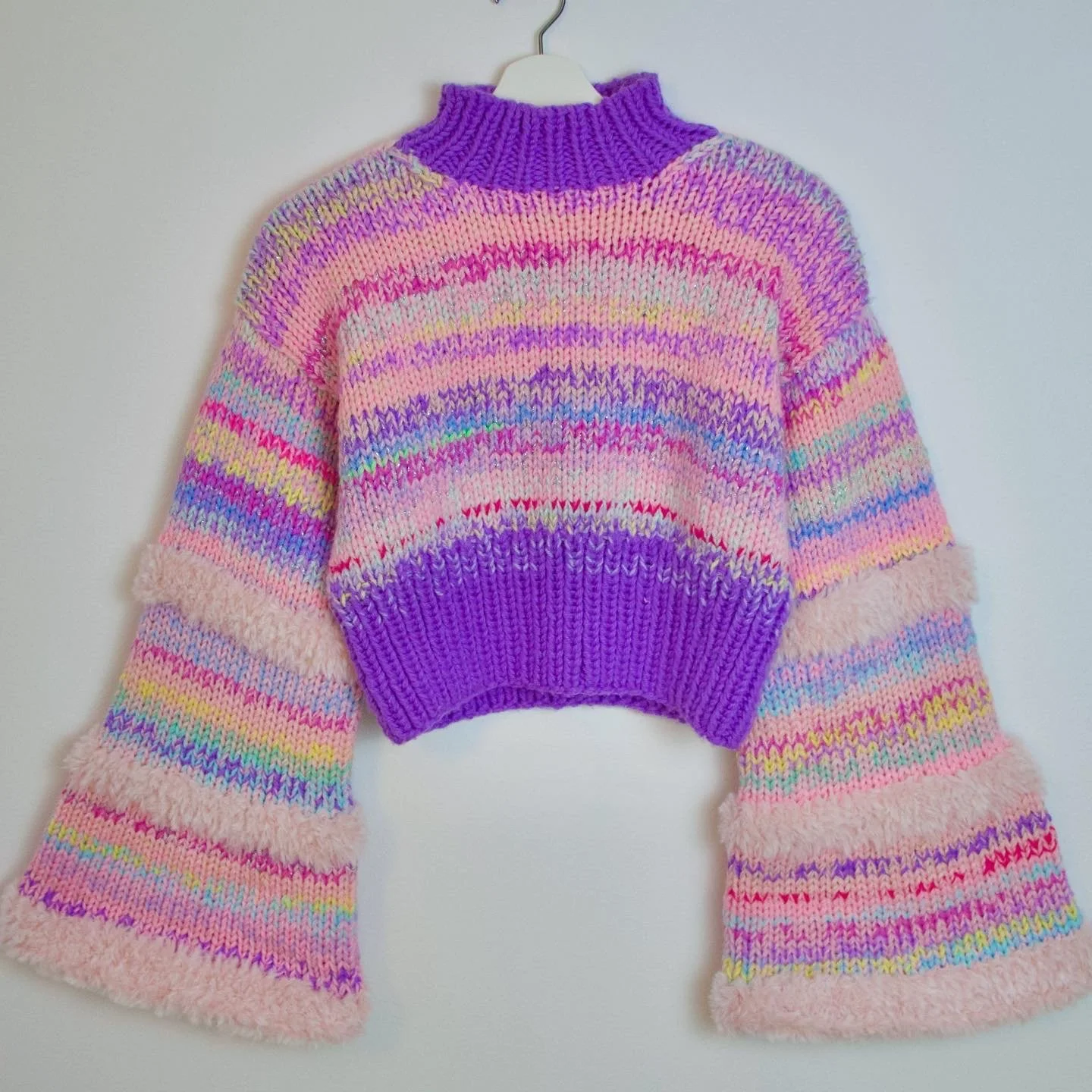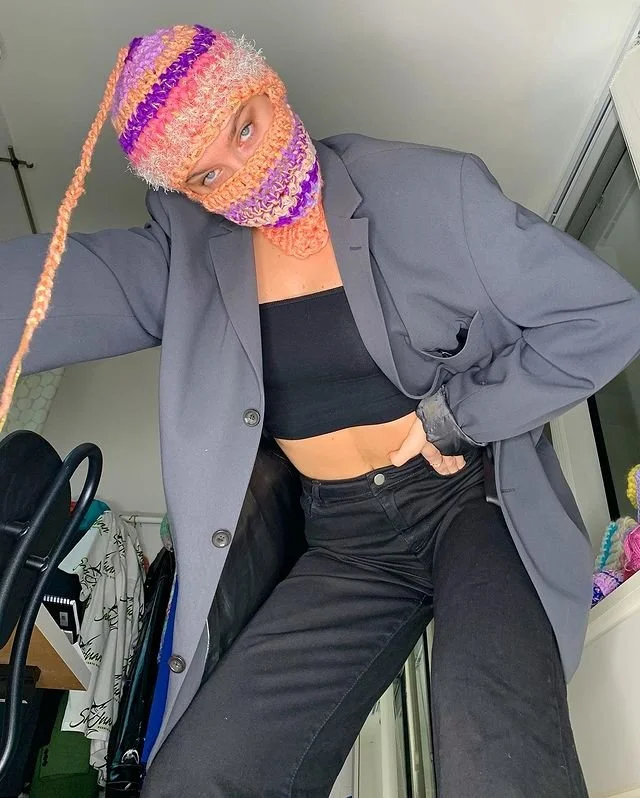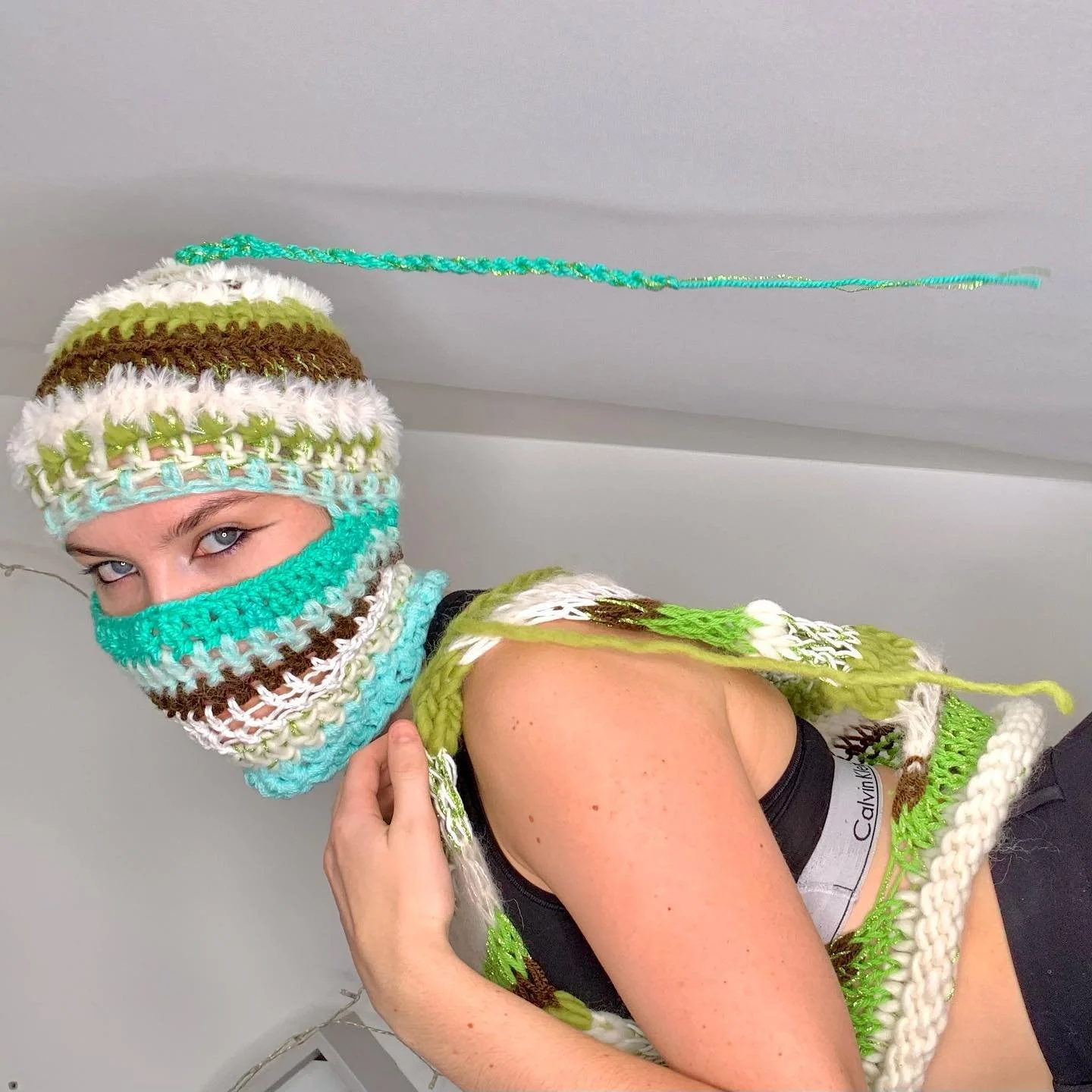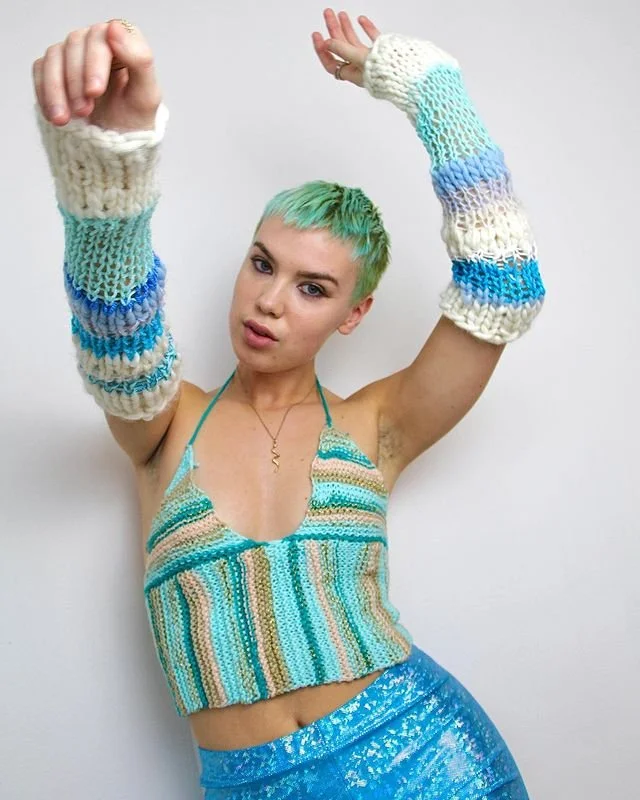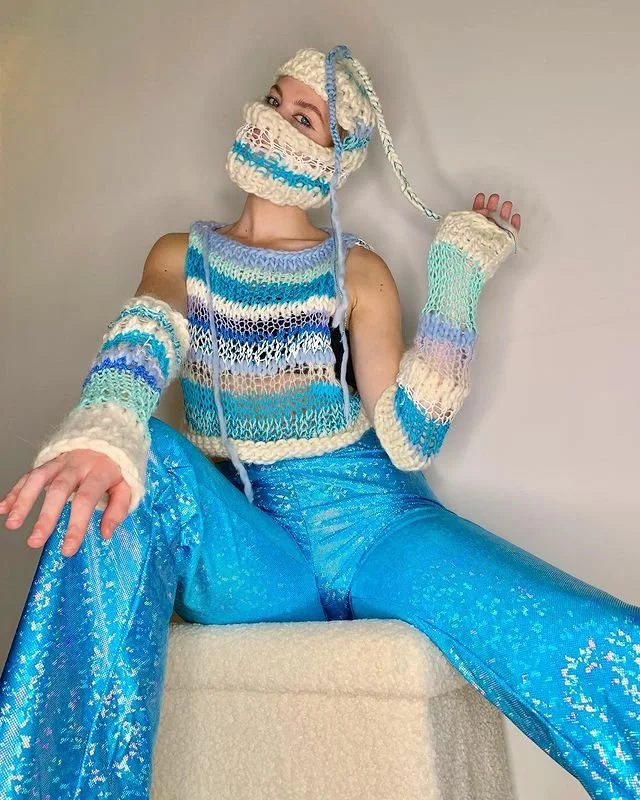INTERVIEW #46 ELIZATIONS
Based in: Malmö, Sweden
Founded in: 2021
Founded by: Eliza Hilding
Store: Worldwide shipping, selling via webshop: www.elizations.se
Instagram: @elizations / @elizations_studio
Price range: 100€-400€
Why we love her: We love Elizations for many reasons. The amazing creations, the work behind, the tone of voice, the story behind the brand and last but absolutely not least the fact that Eliza wants to teach her community to knit their own creations, beautiful. Elizations is fun, playful and it makes us so happy just to look at all the lovely colors, can you imagine the feeling of wearing an Elizations garment, wow!
What is Elizations and why did you start?
I started Elizations, my own clothing brand, in 2021. I focus on creating unique handmade pieces, usually with lots of colors. The idea with Elizations is that no garment will be reproduced, everything is 1 of 1. Aside from making handmade clothes, I also write knitting patterns so that knitters can reproduce some of my designs and add their personal touch.
What is your sustainability profile?
I make sure to use yarn of good quality (Oeko-Tex certified) that I know will hold over time. Lately I've been working with natural fibres like organic wool and cotton, and I purchase from thrift stores when I can. All scrap yarns are saved to use for future projects. The packaging used to send out orders is made of corn starch which makes it entirely biodegradable and compostable. Shipping is climate-compensated.
Also, one of the reasons I write knitting patterns is because I want to encourage people to be more environmentally conscious. By making your own clothes you understand the amount of work behind and learn to appreciate and cherish your clothes in a completely different way. You also realise the true value of garments and how fast fashion prices are totally unrealistic.
How and where are the products produced and where do you source the yarn from?
The products are hand-knitted or crocheted by me in my little studio/bedroom in Malmö, Sweden. Most of the wool I use is untreated and made in Europe to avoid transport, or bought in thrift stores.
Where do you find inspiration?
Some of my inspiration comes from ABBA and the 70s. I love the extravagant shapes, the glitter and the vibrant colors. I also spend a lot of time contemplating strangers, "studying" their behaviours and the way they dress. I learn a lot from this and kind of keep in mind details that I find interesting/intriguing to incorporate in my future projects. Fashion really is a great way of expression and to me it feels like a superpower.
What have been and are the major challenges?
To not be too hard on myself. Running a small business all by yourself is a lot of work and there are many new things to learn, which can be a little bit overwhelming. I feel like it is hard to set boundaries to keep work and personal life separate. I am very ambitious and always looking to improve my work, which is great, but it can also be too much sometimes.
What has been and are the largest gain?
Being able to work with something I love and look forward to every single day is a win. I am beyond grateful for the support I've gotten since I started and for how lovely the knitting community is!
What do you think needs to change in the fashion industry to make it more sustainable?
The fashion industry is extremely harmful to the environment, being the second largest polluter in the world. Overconsumption is a major problem today and I think that both fast fashion companies and consumers behaviour must change. We, consumers, must think an extra time before buying new clothes. The only way to make the fast fashion industry change into something better is by reducing our consumption or boycotting. Fast fashion companies have a lot to improve when it comes to the environment, but also how they treat their workers.
I also think it is important to call out influencers who promote overconsumption and fast fashion brands that are unethical & unsustainable... We all know how much power influencers have over our generation and I believe that they could change a lot of things if they decided to act.
What would you advise consumers to do who seek to create a sustainable closet and lifestyle?
As consumers we need to buy less and focus on what we really need, instead of falling into the micro-trends trap. Buying clothes second hand or vintage, up-cycling, remaking, buying from sustainable brands or making your own handmade clothes are some options. I am also very aware that many people can not afford buying from sustainable brands, but we can all think an extra time before buying a new garment: "Do I really need this".
What's next for Elizations?
I have a lot of projects going on right now. I will be releasing a mini winter-collection of balaclavas, hats, scarfs... I am also planning on writing more knitting patterns and filming tutorials to teach as many people as possible the art of knitting.

